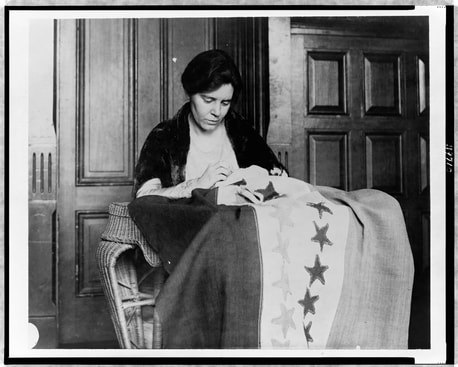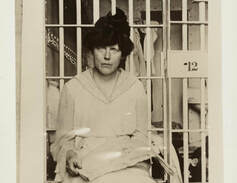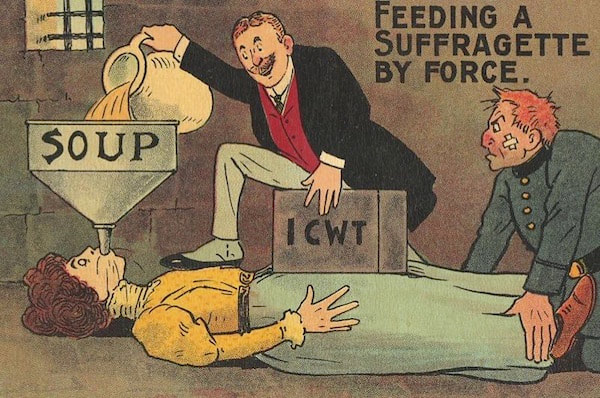The day after the police announced that future protesting in front of the White House would result in arrest and imprisonment, Alice Paul led the picket line with a banner quoting President Wilson: "The time has come to conquer or submit for there is but one choice--we have made it." He may have been speaking of the Axis Powers, but she was every bit as determined to win this war for the right of women to have a say in their own government.
She and the other women with her were arrested, although they had committed no crime. Once imprisoned, Alice Paul employed the tactics she had learned in England from Emmaline Pankhurst and went on a hunger strike to prove that though the body may be taken prisoner, the spirit is still free. In this game of wills, the ball was in her jailor's court. They force-fed her and the other women who refused to eat by placing tubes down their nose and injecting raw eggs directly into their stomachs, causing vomiting, bleeding, and psychological trauma.
They further tortured these hungry women by preparing food outside their cells and tempting them with the smells. All it would have taken for me to cave is a whiff of freshly baked chocolate chip cookies, but they stood strong. The next tactic was to have Alice Paul examined by a psychologist, declared insane, and committed to an asylum. Even physically and emotionally weakened by her experiences, Alice kept her wits about her and was able to answer the questions succinctly. The psychologist was a man of integrity and declared her fit. He told her captors that she had "a spirit like Joan of Arc, and it is useless to try to change it. She will die but she will never give up."
Reports of the abuse were leaked to the newspapers and created sympathy and support for the suffragists. Another point for Alice Paul. In February of 1919, twenty-six women of the National Woman's Party, including Lucy Burns--who held the record for the most times arrested--brought further attention to their cause by going on tour and giving speeches dressed in prison uniforms. They traveled by train, named the "Democracy Limited," though it was known by the public as "The Prison Special."
Louisine Havemeyer, a respected art collector and philanthropist, was a frequent speaker on the route. She later wrote: "The women of America were to languish in a dirty, discarded prison, because they dared to ask for their democracy."
They refused to be silenced. They refused to give up. Alice Paul, who had been raised by a Quaker family followed her mother's words of wisdom: "When you put your hand to the plow, you can't put it down until you get to the end of the row."





 RSS Feed
RSS Feed